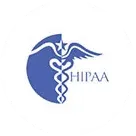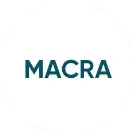In the complex world of healthcare, financial stability is crucial. Revenue Cycle Management (RCM) plays a vital role in achieving this stability.
Hiring an RCM expert can transform your organization’s financial health. They bring expertise in revenue cycle optimization and best practices.
An RCM expert can streamline processes, leading to cash flow improvement. They ensure accurate medical claims processing and enhance revenue integrity solutions.
With their guidance, healthcare financial management becomes more efficient. They implement cost containment strategies that boost profitability.
Investing in an RCM expert is a strategic move. It ensures long-term success and financial sustainability for your healthcare organization.
Understanding Revenue Cycle Management
Revenue Cycle Management (RCM) is central to healthcare operations. It involves overseeing financial processes from patient registration to payment collection. This cycle affects the financial health of organizations.
An effective RCM strategy involves several key areas. It ranges from claims submission to revenue integrity solutions. To optimize these areas, healthcare providers must focus on improving efficiency.
Key elements of RCM include:
- Efficient patient data management
- Accurate claims processing
- Timely billing and collections
Understanding the nuances of these components can help healthcare providers streamline their operations. It reduces delays and improves cash flow.
Importance of Revenue Cycle Optimization
Optimizing the revenue cycle is essential for financial sustainability. Streamlined processes prevent revenue leaks and reduce denials, enhancing cash flow.
Optimized RCM practices ensure that all claims are submitted correctly. This reduces write-offs and improves reimbursement rates. An optimized cycle brings consistency, predictability, and stability.
Benefits of revenue cycle optimization include:
- Reduced claim denials
- Improved cash flow
- Enhanced patient satisfaction
With these improvements, healthcare organizations can focus on delivering quality care, knowing their financial operations are secure.
Components of a Successful RCM Strategy
A successful RCM strategy is multifaceted. It encompasses both front-end and back-end processes to ensure financial robustness. Effective strategies also include staff training and technology integration.
Components critical to a successful strategy include:
- Rigorous staff training programs
- Comprehensive data analytics
- Advanced technology adoption
By focusing on these areas, healthcare providers can realize long-term financial success. They also improve patient experience and engagement.
With a well-rounded strategy, organizations adapt more effectively to industry shifts and regulatory changes.
Key Benefits of Hiring an RCM Expert
Hiring a Revenue Cycle Management expert brings numerous advantages to healthcare organizations. These experts specialize in identifying inefficiencies and implementing best practices. Their knowledge enhances the overall financial performance of the organization.
One primary benefit is improved cash flow. Experts streamline processes to minimize errors and enhance claim acceptance rates. This leads to faster payments and reduced revenue delays, driving better financial health.
Other significant benefits include:
- Reduced administrative burden
- Improved payer relations
- Enhanced patient satisfaction
By leveraging the expertise of an RCM professional, healthcare entities can focus on patient care. This ultimately strengthens their competitive edge and enhances financial stability.
Enhanced Medical Claims Processing
Medical claims processing is a complex yet vital part of healthcare operations. A Revenue Cycle Management expert can streamline this process. They ensure accuracy in claim submissions and reduce the rate of denials.
An expert will analyze existing claims workflows. They identify areas for improvement and implement strategic adjustments. This results in faster claim approvals and improved cash flow.
Key enhancements include:
- Efficient claim submission processes
- Reduced denial rates
- Increased claim accuracy
With expert oversight, organizations can expect smoother operations and quicker reimbursements.
Streamlined Healthcare Financial Management
Effective financial management in healthcare is crucial. RCM experts provide the necessary insight to streamline these processes. They implement strategies that enhance financial reporting and transparency.
Financial management becomes more predictable with expert guidance. Professionals ensure that billing is accurate, minimizing errors. They use data analytics to improve financial health.
Benefits include:
- Accurate financial reporting
- Reduced billing errors
- Improved forecasting abilities
Streamlined financial management allows organizations to allocate resources more effectively. This paves the way for sustained growth and stability.
Effective Revenue Integrity Solutions
Revenue integrity is essential to ensure accurate revenue capture. RCM experts safeguard this by implementing robust integrity solutions. They help ensure compliance with regulations, reducing potential financial penalties.
These experts perform regular audits and assessments. They identify discrepancies and correct them promptly. This ensures that all services rendered are captured and billed correctly.
Elements of revenue integrity solutions include:
- Regular compliance audits
- Error detection and correction
- Comprehensive billing audits
By focusing on revenue integrity, healthcare providers maintain their financial health. This focus fosters trust among payers and patients, assuring consistent and accurate billing practices.
Cost Containment Strategies
Effective cost containment strategies are crucial for healthcare organizations to remain profitable. A Revenue Cycle Management expert can develop tailored strategies that address unique organizational needs. By focusing on cost reduction, they help improve financial performance without sacrificing care quality.
Key strategies often include streamlining billing processes to eliminate waste. This ensures that resources are used efficiently and expenses are minimized. Experts may also negotiate better payer contracts, ensuring maximum reimbursement rates.
Essential cost containment techniques are:
- Streamlined billing processes
- Efficient resource allocation
- Improved contract negotiations
These strategies not only reduce costs but also enhance operational efficiency. Ultimately, healthcare organizations can achieve sustainable growth while maintaining high standards of care.
Identifying Inefficiencies in the Current Process
Identifying inefficiencies in current revenue cycle processes is crucial for improvement. An RCM expert conducts thorough evaluations to pinpoint areas needing refinement. They use data-driven approaches to uncover financial leakages and procedural bottlenecks.
Once identified, these inefficiencies are addressed systematically. Experts develop corrective measures tailored to specific organizational challenges. This often results in significant financial performance enhancements.
Common inefficiencies include:
- Redundant administrative processes
- Inaccurate billing practices
- Delayed claim submissions
By eliminating these issues, healthcare organizations can streamline operations and optimize revenue flow.
Implementing Best Practices in RCM
Implementing best practices in Revenue Cycle Management is pivotal for organizations seeking efficiency. An RCM expert brings extensive knowledge of industry standards and strategies for optimization. They customize these practices to fit organizational needs.
Effective implementation requires a strategic approach. Experts align processes with best practices, ensuring seamless integration. This results in enhanced cash flow and reduced error rates.
Core best practices involve:
- Standardized billing processes
- Comprehensive staff training
- Use of advanced analytics
Through the adoption of these practices, healthcare entities can significantly improve financial outcomes while maintaining compliance.
RCM Consulting Services
RCM consulting services offer unparalleled expertise to healthcare organizations. By engaging with specialized consultants, facilities can optimize their revenue cycle processes. These services provide detailed analysis and recommendations aimed at improving financial operations.
Consultants focus on both strategic planning and hands-on implementation. They bring a wealth of industry insights to address unique challenges. This partnership leads to achieving financial stability and enhanced operational efficiency.
Key offerings of RCM consulting services include:
- Strategic financial analysis
- Customized solutions for revenue cycle improvement
- Ongoing performance evaluations
With these services, healthcare organizations can navigate complexities and drive sustainable growth.
Tailored Solutions for Your Facility
RCM consulting delivers personalized solutions designed specifically for individual facilities. By analyzing each organization’s unique workflow and financial requirements, consultants craft effective strategies. These tailored solutions ensure an optimized and efficient revenue cycle.
Key elements of customized strategies are:
- Facility-specific process evaluation
- Customized workflow enhancements
- Strategic reimbursement optimization
This individualized approach ensures that facilities achieve the best possible financial outcomes.
Ongoing Support for Continued Improvement
Continuous improvement is essential for long-term success in healthcare financial management. RCM consultants provide ongoing support to facilitate continual growth and adaptation. They monitor progress and implement timely interventions as needed.
Features of ongoing support include:
- Regular performance reviews
- Adaptive strategy adjustments
- Educational workshops for staff
This commitment to continuous improvement ensures that healthcare facilities remain competitive and efficient in an ever-evolving industry.
Cash Flow Improvement Strategies
Improving cash flow is crucial for the financial health of healthcare organizations. Implementing strategic measures can significantly enhance liquidity. RCM experts help identify and correct issues that impede cash flow efficiency.
Strategies involve optimizing billing practices and ensuring timely reimbursements. These efforts reduce delays and improve overall revenue collection processes.
Key strategies include:
- Efficient billing and collection practices
- Enhanced patient payment plans
- Regular financial audits
These improvements lead to a stable financial environment, supporting better resource allocation and operational efficiency.
Techniques for Maximizing Collections
Maximizing collections is vital for maintaining revenue stability. Techniques involve optimizing patient communication and streamlining billing processes. By enhancing clarity and accessibility, organizations can significantly increase collection rates.
Effective techniques encompass:
- Clear patient billing communications
- Simplified payment processes
- Proactive follow-up on outstanding balances
These approaches ensure patients are well-informed and facilitate smoother transactions, ultimately boosting collection success.
Monitoring and Analyzing Cash Flow Trends
Understanding cash flow trends allows for informed decision-making. RCM experts utilize advanced analytics to monitor financial patterns, highlighting areas for improvement. These insights help optimize cash flow management.
Key aspects of monitoring include:
- Real-time financial data tracking
- Trend analysis for forecasting
- Identification of cash flow bottlenecks
Consistent analysis allows organizations to adapt strategies swiftly, ensuring a robust financial footing.
Conclusion: Investing in an RCM Expert for Long-Term Success
Hiring an RCM expert is a strategic move for any healthcare organization aiming for financial success. Their expertise brings about substantial improvements in efficiency and profitability.
By focusing on revenue cycle optimization and adopting best practices, these professionals can transform financial processes. This investment not only enhances cash flow but also prepares organizations for future challenges. In the long run, a well-executed RCM strategy supports sustainable growth and resilience in the ever-evolving healthcare landscape.




